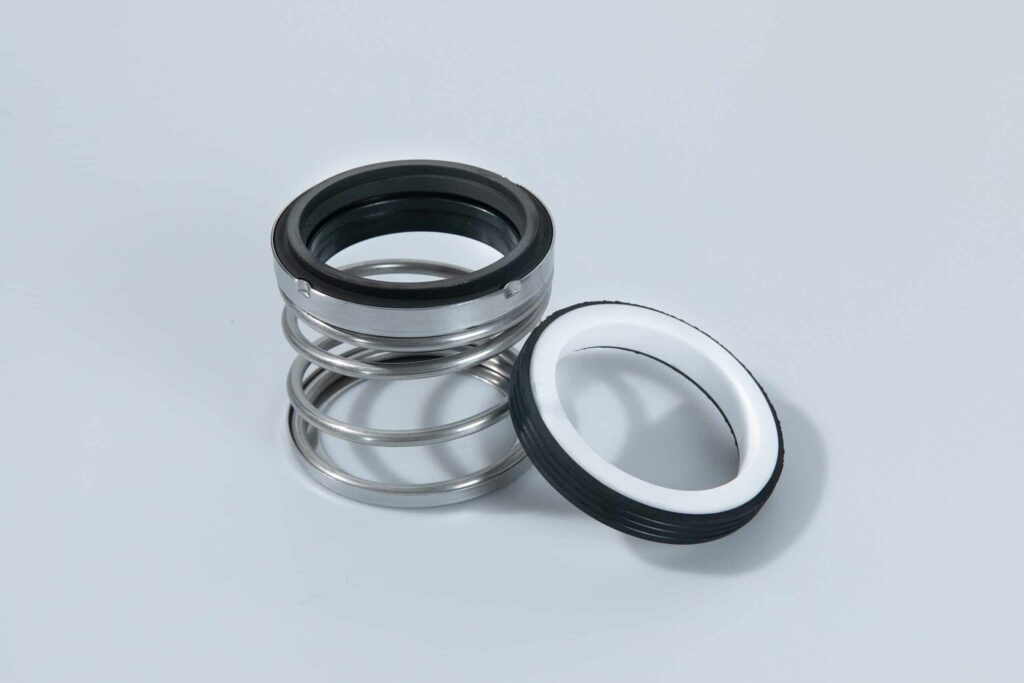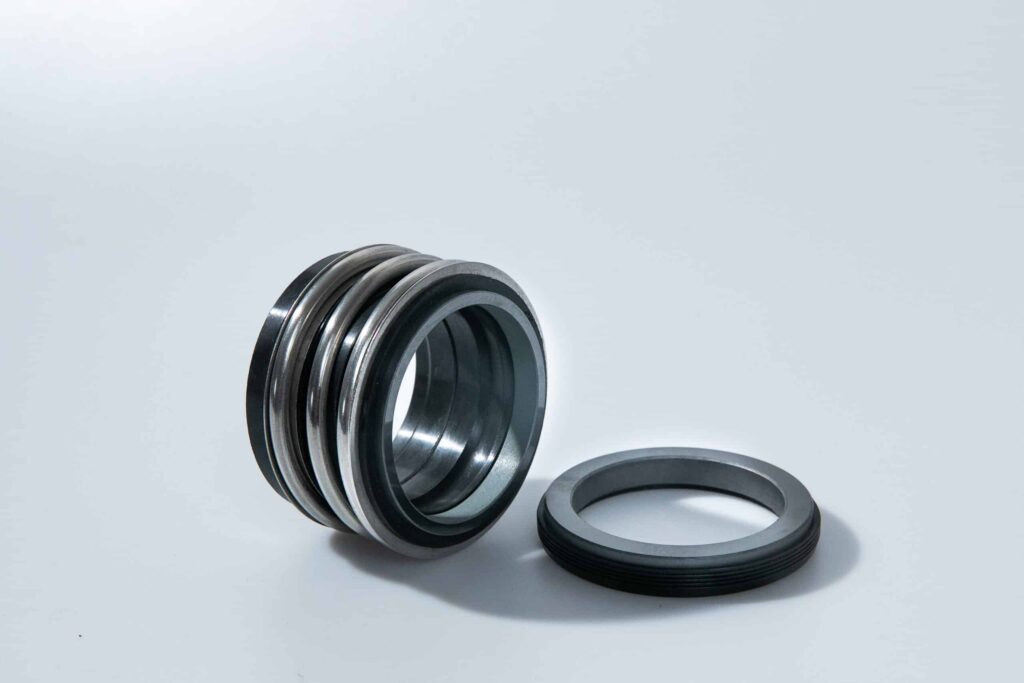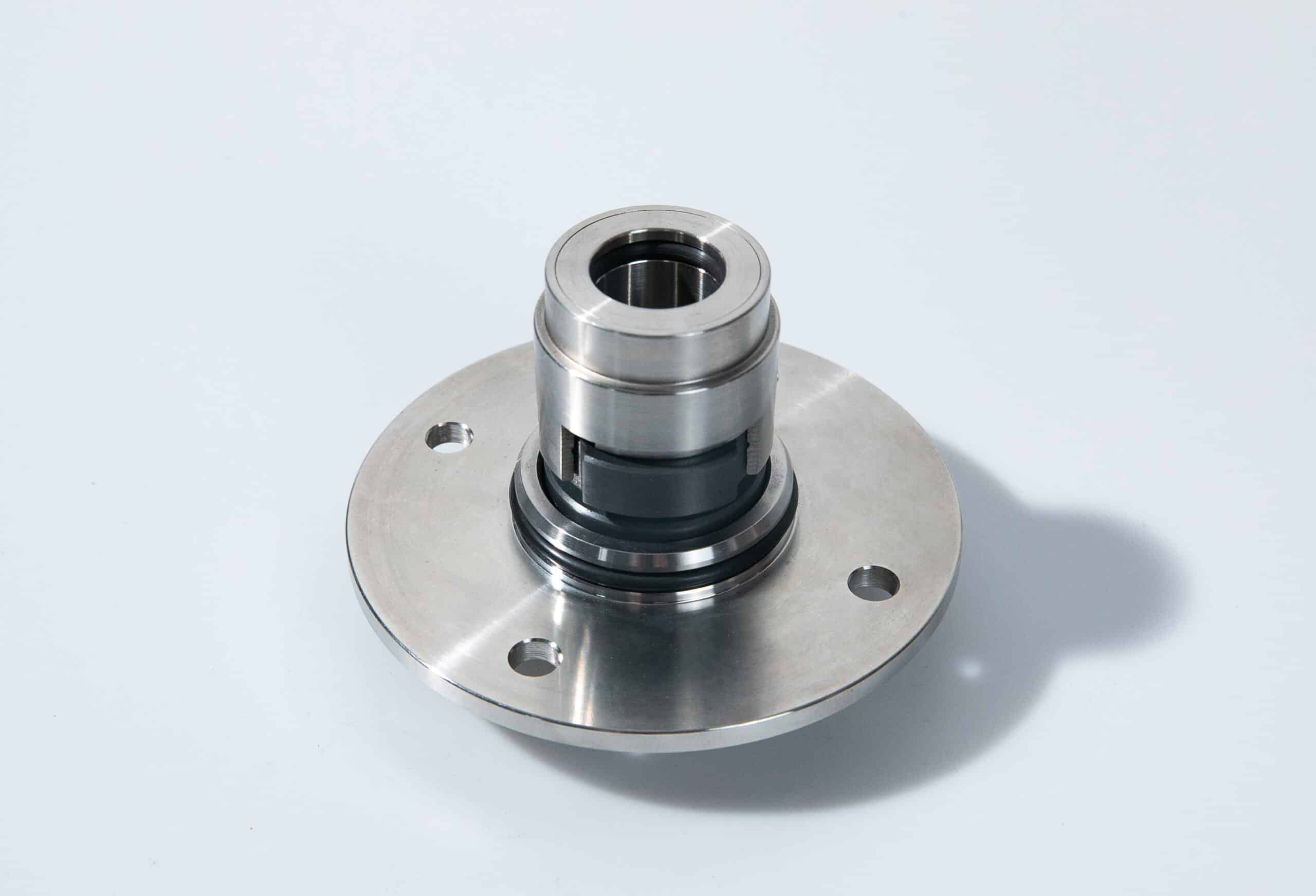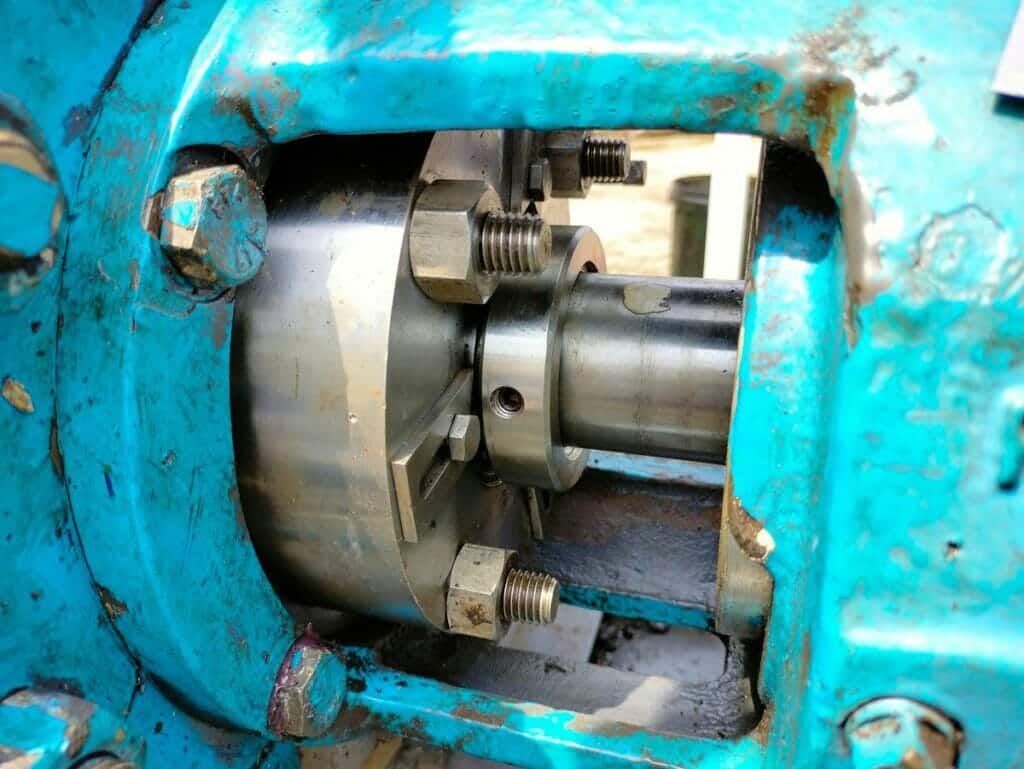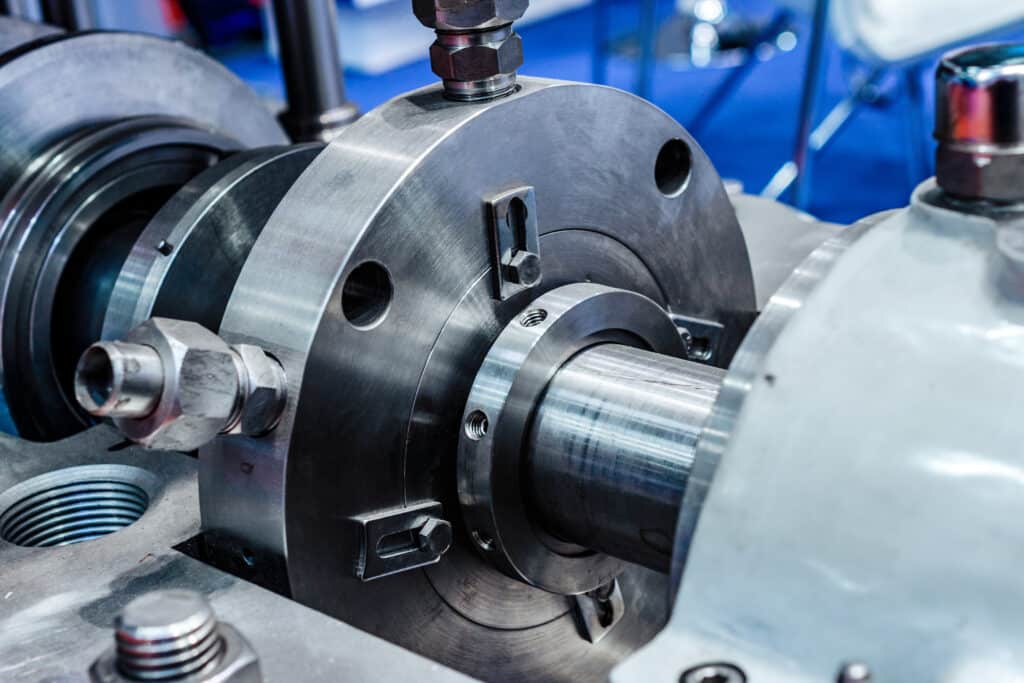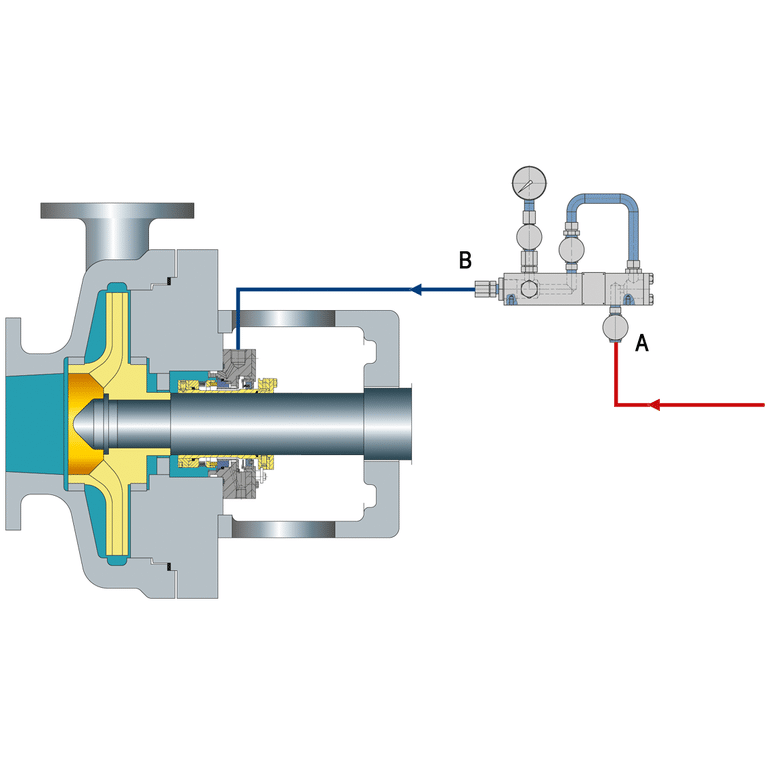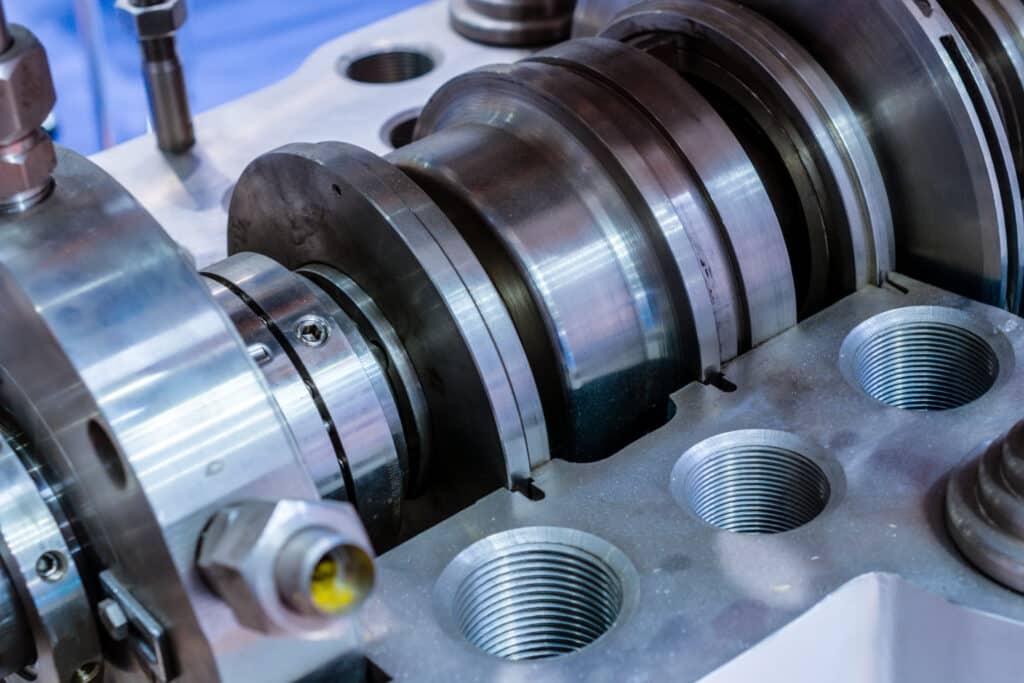
What Is Mechanical Seal
A mechanical seal is a type of seal that is used to prevent leakage of fluids between rotating shaft and stationary housing in mechanical engineering applications. It consists of two main components: a rotating component attached to the shaft and a stationary component attached to the housing. The two components are pressed together by springs, creating a tight seal that prevents fluid leakage.
The sealing action is achieved through a thin fluid film between the seal faces, which is maintained by a combination of hydraulic pressure and inboard springs.
Advantages of Mechanical Seal
- Effective sealing: Mechanical seals provide an excellent sealing solution, preventing leakage of fluids even under high-pressure conditions.
- Low maintenance: Compared to other sealing methods like gland packing, mechanical seals require less frequent maintenance and adjustments.
- Longer service life: With proper installation and maintenance, mechanical seals can last longer than other sealing options, reducing downtime and replacement costs.
- Versatility: Mechanical seals can be designed to handle a wide range of fluids, temperatures, and pressures, making them suitable for various industrial applications.
- Reduced friction: The fluid film between the seal faces helps reduce friction and wear, leading to improved efficiency and longer seal life.
Disadvantages of Mechanical Seal
- Higher initial cost: Mechanical seals are generally more expensive than other sealing options like oil seals or gland packing.
- Complex installation: Installing a mechanical seal requires precise alignment and careful handling, which may necessitate skilled labor and special tools.
- Sensitivity to contaminants: Mechanical seals are sensitive to contaminants in the process fluid, which can lead to premature failure if not addressed properly.
- Limited tolerance for shaft deflections: Excessive shaft deflections or misalignment can cause mechanical seal failure, requiring precise installation and maintenance.
- Potential for catastrophic failure: In case of a mechanical seal failure, the consequences can be severe, leading to significant fluid leakage and equipment damage.

What Is Oil Seal
An oil seal, also known as a radial shaft seal or rubber oil seal, is a type of seal that is used to prevent leakage of lubricants and the ingress of contaminants in rotating equipment. It consists of a flexible elastomeric material, such as rubber or silicone, bonded to a metal case. The elastomeric material forms a tight seal around the rotating shaft, while the metal case provides structural support and facilitates installation.
Advantages of Oil Seal
- Cost-effective: Oil seals are generally less expensive than mechanical seals, making them an economical choice for many applications.
- Easy installation: Oil seals are relatively easy to install and replace, requiring less skilled labor compared to mechanical seals.
- Good sealing performance: When properly selected and installed, oil seals can provide effective sealing against lubricant leakage and contaminant ingress.
- Compact design: Oil seals have a simple and compact design, which makes them suitable for applications with limited space.
- Tolerance for misalignment: Oil seals can accommodate minor shaft misalignments or deflections better than mechanical seals.
Disadvantages of Oil Seal
- Limited pressure capability: Oil seals are not suitable for high-pressure applications, as they may fail to provide adequate sealing under such conditions.
- Shorter service life: Compared to mechanical seals, oil seals generally have a shorter service life and may require more frequent replacements.
- Susceptibility to wear: Oil seals are subject to wear due to friction between the seal lip and the rotating shaft, which can lead to leakage over time.
- Temperature limitations: The performance of oil seals can be affected by extreme temperatures, as the elastomeric material may degrade or lose its sealing properties.
- Incompatibility with certain fluids: Some aggressive chemicals or fluids may attack the elastomeric material of the oil seal, causing premature failure.
When to Use Mechanical Seal
Mechanical seals are the preferred choice in the following situations:
- High-pressure applications: When the process fluid is under high pressure, mechanical seals provide better sealing performance than oil seals.
- Harsh environments: In applications with high temperatures, aggressive chemicals, or abrasive particles, mechanical seals with suitable materials can withstand these conditions better than oil seals.
- Critical applications: For equipment where seal failure can lead to significant safety, environmental, or financial consequences, mechanical seals offer a more reliable sealing solution.
- High-speed applications: Mechanical seals are designed to operate at higher rotational speeds compared to oil seals, making them suitable for high-speed machinery.
- Low leakage requirements: When the application demands minimal leakage, mechanical seals can provide better sealing performance than oil seals.
When to Use Oil Seal
Oil seals are preferred in the following situations:
- Low-pressure applications: For equipment operating at low pressures, oil seals can provide adequate sealing performance at a lower cost than mechanical seals.
- Compact spaces: When the available space for the sealing system is limited, oil seals can be a better fit due to their compact design.
- Budget constraints: If the project has strict budget limitations, oil seals can be a cost-effective alternative to mechanical seals.
- Moderate operating conditions: In applications with moderate temperatures, speeds, and chemical compatibility requirements, oil seals can provide satisfactory performance.
- Ease of maintenance: For equipment that requires frequent seal replacements, oil seals can be a more convenient option due to their simple installation and replacement process.
